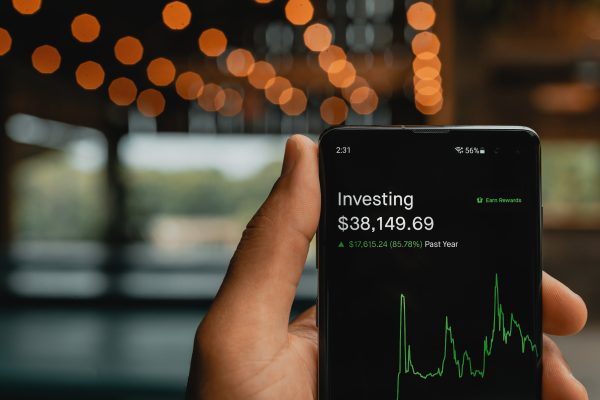If you enjoyed this article, you can follow me on Twitter or LinkedIn.

Stock Market Rally: What does it mean for your portfolio?
21 July 2023 6 min read

4 min read
Published:
Updated:

Haider Saleem
Stock investing is the bread and butter of pretty much any investment portfolio for a large part of your lifetime.
But you still don’t know exactly how to invest in stocks, or where to go when you are ready to invest, and how much you should allocate to stock investing. This is the guide for you.
We’ll cover 3 key ways to invest in stocks:
For a detailed explanation of shares & forex – read this article. For general info on the stock market – read this.
Pick this if you want to choose and manage your own stock or funds.
This isn’t the best way for beginners, we would recommend funds or robo-advisors as explained below.
DIY requires a lot of work. You can practice stock investing in the real market with virtual money. Many platforms offer this, such as AJ Bell.
But if you invest DIY, consider the following points:
You can only buy stocks through a broker. They can be an individual or a company, who act as an intermediary between an investor and an exchange.
Here are four things to look out for in a broker:
If you’re using large amounts, it’s best you use an ISA with someone like AJ Bell. This will protect you from Capital Gain Tax. Nice.
For smaller amounts, it’s best to use a low-cost broker like DeGiro or Trading212. This is because they’re very cheap and you don’t need to worry about capital gains tax as much (as you are investing small amounts you are unlikely to trigger the £12,300 capital gains tax limit for this tax year).
For investing in funds rather than stocks (as explained below) – we’d recommend AJ Bell.
This is in terms of the stocks you pick and how you go about them. Our Halal Investing course is a good starting point.
You don’t want your hard-earned halal money investing in haram products. Apps like Zoya or Islamicly can help with this, however, they’re always just a starting point.
We have an article explaining the five key criteria that a company must pass in order to be considered a sharia-compliant halal investment.
If you’re seriously considering DIY – then check out our halal stock screener course.
This type of investing is for the long term as it takes time to do well. Don’t rush it as you’ll just get burned.
If you want something short-term, consider other options e.g. fixed-income investments Sukuks. You can find these here.
Pick this if you want to diversify in lots of stocks.
This is much easier than DIY.
Mutual funds allow you to purchase a large selection of stocks within one fund, in one transaction. This can be done through a broker.
You should pick a fund due to:
It’s difficult to get these when you DIY as it’ll cost loads with the brokerage fees.
Some funds are haram, but there are Islamic ones out there. Thinking halal – pick a broker like AJ Bell or HL to invest in as they cover most Islamic funds.
We at IFG recommend AJ Bell as they offer tax-efficient wrappers for UK customers and because they have a wide-ranging basket of sharia-compliant funds to choose from too. You can also open a SIPP with them using this link.
You can compare some funds on our Halal Investment Platform.
Pick this if you want someone else to manage your investment (for a fee).
This is by far the simplest way.
A company will ask you about your investment goals. They then will build you a portfolio designed to achieve those aims. You then leave it to them to manage it.
Some places to go include Wahed or in the USA Sharia portfolio, Aghaz etc. If you’re unsure, compare them all on our Halal Investment Platform.
You can open an account very quickly and for little money.
The upside of this is you’re saved all of the pain that DIY has. These guys will often invest in the same funds you can invest in directly, but they also give you exposure to other things like gold, Sukuk etc. They’ll also rebalance your portfolio for you too.
The downfall is that they do charge a fee on top of the fund fees, so it’s not for free. To find out more about how to balance all this, check out our HIBP course, or to get started investing go to the HIP.
Some points to consider before investing:
Drop a comment if you want further info, and check our Halal Investment Platform if you’re interested in starting.

21 July 2023 6 min read

15 February 2023 7 min read

10 January 2023 11 min read